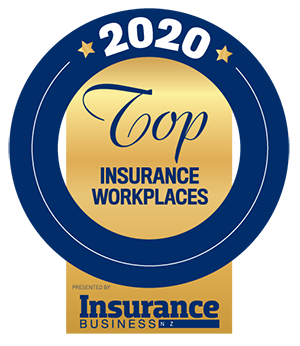Understanding Business Interruption Insurance
A GUIDE FOR PROFESSIONAL SERVICE BUSINESSES
Business Interruption (BI) Insurance differs from most other insurance policies in that it is a consequential loss policy. This means that it only kicks in after your business has suffered an insured material damage loss. Unlike a manufacturing operation, professional services businesses such as lawyers, accountants, and consultants do not have a major dependence on ‘mission critical’ assets and plant. This short article will look at how a professional services business might claim an interruption.
WHEN CAN I CLAIM FOR AN INTERRUPTION LOSS?
You can only claim following damage-causing events, such as flood, fire, or earthquake, which are covered by your material damage policy. Such a claim will then trigger the ability to claim under the business interruption policy. So an interruption such as Covid-19 lockdown is not a claimable event, as there is no related asset loss. However, while cover extensions are available, and some policies do cover prevention of access, pandemic cover was extremely rare in NZ prior to COVID, and is now impossible to get.
Most interruption policies do however have special additions to the cover (known as automatic policy extensions) that specifically bring in cover for things like loss of utilities (e.g. the power is out in your office for an extended period) or prevention of access due to a road closure. In these specific cases, an asset loss is not a requirement in order to claim but there are usually more stringent standdown periods (e.g. power would need to be out for 2 days) and limited cover (e.g. 10% of your sum insured).
WILL THE FULL SUM INSURED BE PAID IN A CLAIM?
Unlike a life insurance policy or winning lotto, there is no immediate pay-out of cash on the occurrence of a particular event. With a BI claim the onus is on you, the insured, to prove your loss, and specifically show where the event has led to the loss of income or increased costs. So, if a loss can be resolved by using other premises (or staff working from home) or other assets available to you, then no claim is payable. In a professional services business, it’s often difficult to prove any meaningful loss as the show generally goes on, even if the office is flooded.
WHAT CAN I CLAIM FOR?
A BI policy provides cover for insured items. The most commonly insured items are:
- Loss of revenue
- Gross Profit (including 100% of wages)
- Gross Rents Receivable
- Claims preparation posts
- Additional increased cost of working
Having BI insurance does not mean that you can claim for any or all insurable items. When arranging the cover it is necessary to work out which items need to be insured (and more specifically which items can actually be claimed), and how much you want to insure each item for. This is where having the right broker is invaluable. It’s important that the broker takes the time to work with you to establish the necessary insurable items and the insured amounts.
It is equally important to consider the client’s intention in the event of a large loss. If your intention following a catastrophe event is to either wind up the business/retire, or downsize, then the cover should reflect those intentions rather than wasting money on a BI cover that may not be used.
as a professional service business, what cover do I NEED?
It is really important to run a major event scenario (such as the office building burning to the ground), that takes account of your access to client records and technology.
For example, if there is a locally hosted server on-site, with auto or manual backups, and the restore process involves acquiring new hardware, installing critical software, and restoring the data - this could take weeks. So even though your staff could work from home, could they still undertake and bill for their work without access to client data?
You also need to consider what comes next. Will you actually lose the clients, or will the billings simply be deferred for a month or so? What impact will the interruption have on your gross profits for the financial year? Remember that an insurer will be doing all of these calculations post-loss, so it’s crucial that you and your broker consider this before something happens.
If the technology is structured in a way that the access to client data is not interrupted (ie data is cloud-based and laptops are taken home), then despite the loss of premises, staff could continue to work and bill clients without interruption. In this scenario, it is unlikely the insurer would consider paying a loss of gross profits claim.
Basically, the resilience and accessibility of your professional services business will be the primary thing that an insurer takes account of at claim time. So, with this in mind, if you cannot foresee a loss of sales then insuring it, through loss of gross profit or loss of revenue items, may be pointless (and a waste of money) as the policy may never respond. This does not mean that BI cover is pointless for a professional services business. Every business is different due to the way it structures its technology and how resilient it is. A bespoke solution to every business is the best approach.
does my professional services business need to insure gross profits?
At a minimum, a professional services business that can continue to operate after a loss of premises should retain cover for ‘additional increased costs of working’ and ‘claims preparation costs’. If there is not going to be a reduction in billings then having a gross profits cover is unlikely to be of any use.
Gross profits cover may be relevant for a short period, i.e. 3 or 6 months indemnity period, if the professional services business will suffer from getting technology re-configured and if there is a real risk of losing clients or engagements.
‘Additional increased costs of working’ is designed to cover the costs associated with avoiding or limiting a reduction in turnover or to resume ‘business as usual’ activities (after a material damage event – e.g. a building fire). Example costs include leasing an alternative building at a greater cost, transferring phones, technology changes so that staff can work from a different location or remotely, advertising costs associated with letting customers know about the changes, temporary employment of additional staff, overtime to existing staff and many more.
In many cases of physical loss, a professional services business would not be able to prove a loss of revenue or gross profits. So an ‘additional increased costs of working’ cover provides the most protection at a lower overall premium cost (compared to having a gross profits cover that cannot be utilised).
Additional increased costs of working should not be confused with ‘Increased costs of working’ (insured as part of a gross profit item), Increased costs require you to prove that the costs are preserving profit efficiently, such as spending 60 cents to preserve $1 of profit. Additional increase costs do not have the same requirement, so you could spend $1.20 to preserve $1 in profit (e.g your client base).
‘Claims preparation costs’ allow you to engage a professional to calculate the cost of your claim on your behalf. Claims preparation costs also cover the cost of engaging a specialist interruption consultant, which is especially important if the insurer is not responsive. Along with your broker advocating, it's important to have the ability to engage such professionals to ensure you receive the full entitlement.
when will payments cease?
A BI claim will reach a final settlement after any one of three events;
- Your business returns to normal operations and profitability.
- You exhaust the sum insured.
- You reach the end of the indemnity period (i.e. pay-out period).
An indemnity period is the maximum length of time that the insurer will pay a BI claim. The indemnity starts on the date of the MD loss. In some cases, it can be deferred or paused, but this is not as relevant to professional services businesses. Once you reach the end of the period, payments cease even if you have not used the full sum insured or returned to your normal operations or profitability.
Typically indemnity periods are 12, 18, or 24 months. Periods of 36 months or longer can be negotiated for you by your insurance broker, however professional services businesses will ordinarily find 24 months adequate. Remember that you will need to continue to prove your loss throughout the entire period of your claim, it’s not a one and done scenario that guarantees continued payment for the entirety of the indemnity period.
What next?
Talk to your Frank Risk Management broker about tailoring the right Business Interruption policy for your professional services business. Businesses are unique and the coverage you have in place needs to reflect that. Having a well-structured interruption cover might be the thing that helps your business survive a major event.
The team at Frank can also discuss the preparation of an Emergency Response Planning (ERP) tailored for your business. Having an ERP is obviously helpful in the event of a claim, but it also shows the insurer that you are serious about mitigating risk, which may help with underwriting and even premium cost reduction.
This is general advice only, it is not intended to be financial advice. Always consult your financial services provider or broker for specific advice relevant to your situation.







